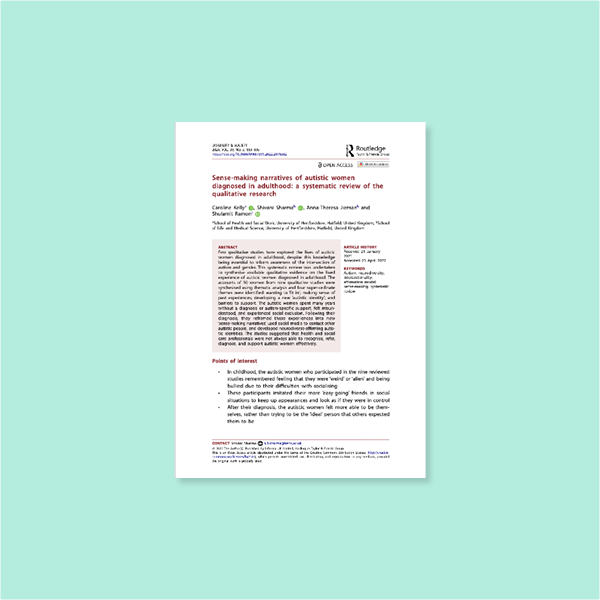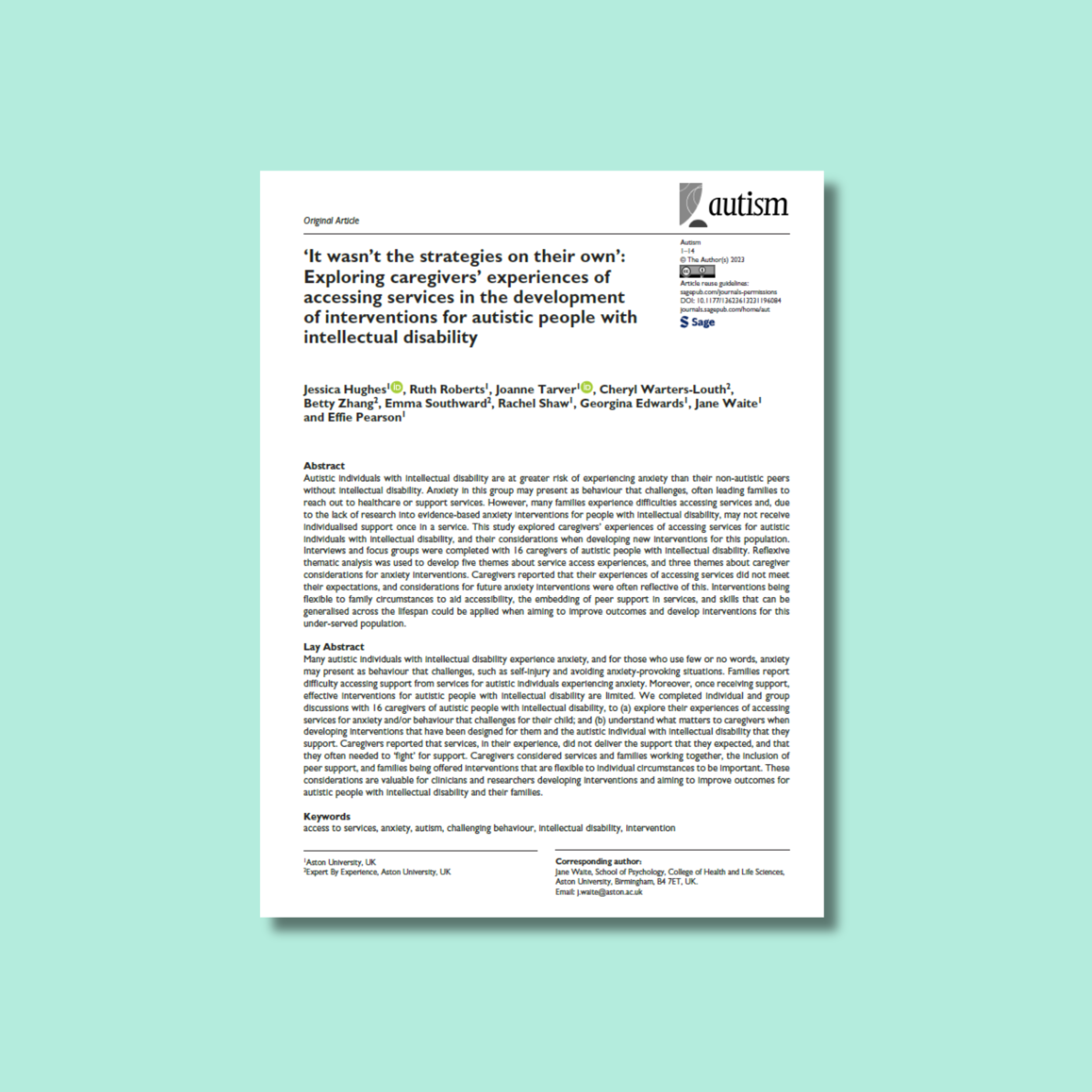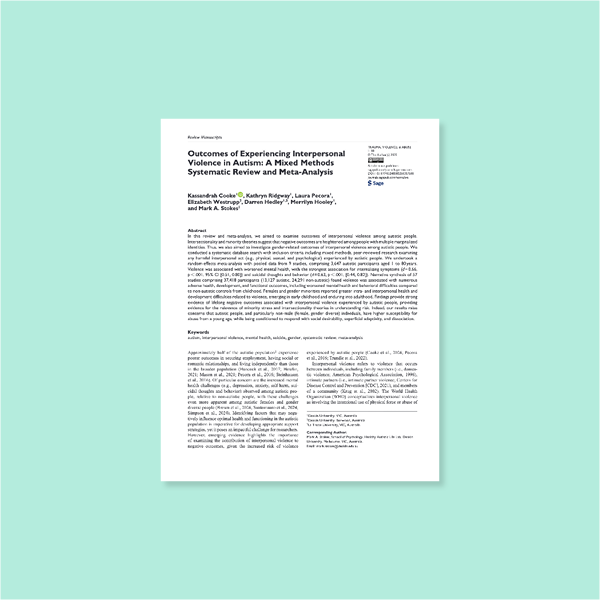 Image 1 of 1
Image 1 of 1


Increased rates of chronic physical health conditions across all organ systems in Autistic adolescents and adults
Ward, Weir, Allison and Baron-Cohen (2023)
Autistic adults are more likely than non-autistic adults to have a wide range of physical health problems affecting many organ systems. This large survey found especially high rates of neurological and gastrointestinal issues, and possible links between autism and conditions like Ehlers-Danlos Syndrome and Coeliac’s disease. The study highlights the need for healthcare professionals to understand better and address the physical health needs of autistic people.
Ward, Weir, Allison and Baron-Cohen (2023)
Autistic adults are more likely than non-autistic adults to have a wide range of physical health problems affecting many organ systems. This large survey found especially high rates of neurological and gastrointestinal issues, and possible links between autism and conditions like Ehlers-Danlos Syndrome and Coeliac’s disease. The study highlights the need for healthcare professionals to understand better and address the physical health needs of autistic people.





![The PDA neurotype vs demand avoidance [+ infographic]](https://images.squarespace-cdn.com/content/v1/632462bb88e23c400c82d41a/91a89a1e-f380-41fb-b65b-4e49ba37232c/The+PDA+Neurotype+Vs+Demand+Avoidance+%5B%2B+Infographic%5D.png)
